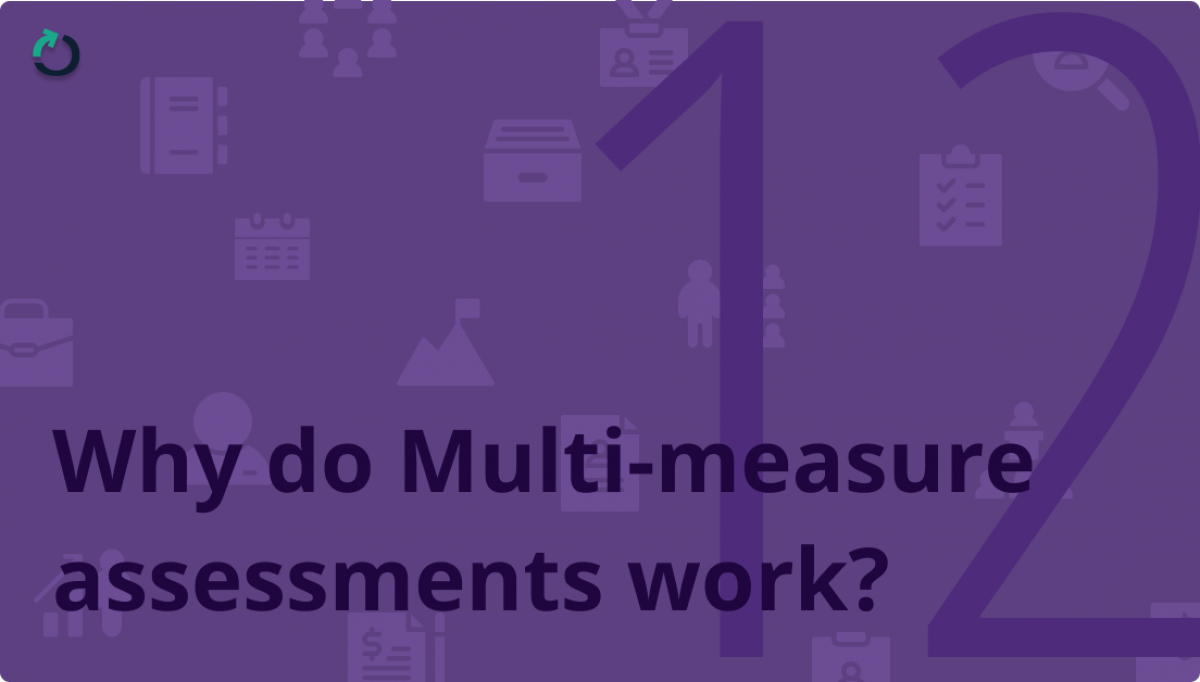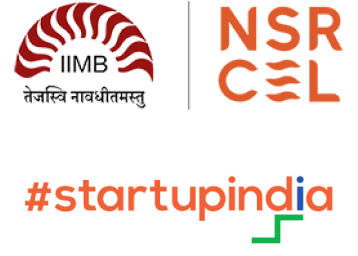Since you are already creating top-class assessments with Merreo, let's discuss why Multi-Measure Assessments work.
Pre-employment testing is a contentious concept, but they work. One of the major criticisms levied on pre-hiring assessments is that they measure a very narrow spectrum of skillsets and abilities for assessing job success. While this might be true for a regular pre-hiring assessment, a multi-measure pre-hiring test is proven to be so effective that it moots the argument.
Firstly, what are Multi-measure assessments?
Simply put, a multi-measure test is a bundle of different tests combined to make up one assessment. And each test measures non-identical aspects of a candidate's skill set and abilities– cognitive abilities, language skills, hard skills, personality, or programming skills.
For example,
Assume you are hiring for a Business Analyst role, and the role demands data analytics skills, business acumen, analytical thinking, and critical thinking skills.
A selection of tests that include tests like Math thinking (Mathematical aptitude), Critical Thinking, Interpreting data (Understanding of statistics), R - Programming (Language), and Power BI (Tool expertise) would be ideal for the role.
Secondly, why Multi-measure assessments?
Multi-measure assessments go beyond mooting the argument of measuring a narrow spectrum of skill sets; they are more predictive of job success than any other system. This level of accuracy is not just because of candidate evaluation based on different factors, but also the intensity of the assessment. While taking a single test, we can enter a comfort zone, but with a multi-measure assessment, you will be bombarded by a different test just when you were getting comfortable. That is why when creating multi-measure test we need to choose the tests that are varied and do not inter-correlate with each other.
There is a lot of research that backs this argument. Harvard Business Review published an extensive research on this subject and concluded that combining different skill tests into a single assessment is the best way to predict job success in candidates (see the below correlation numbers – 0.7 is considered a strong correlation).
But there is one disadvantage with multi-measure assessments; they could be long. And this is not a problem to be easily dismissed. In Merreo, we are seeing a significant drop in intent from the candidates if the test takes longer than 60 minutes. But why do people design tests that are long? Here is where some statistics come into play. If we need to predict anything with a decent level of certainty, we need to increase the confidence interval, and with assessments, the easiest way to increase the confidence interval is by increasing the number of questions - which increases the test length.
This is where Merreo comes in; we make short but highly-effective multi-measure assessments. We do that through our ADAPTIVE tests. As referenced earlier, increasing the number of questions is the easy way to enhance accuracy. The more elegant solution to that problem is by making the test Adaptive. In an Adaptive test, the candidate will get a medium-level question at the start, and based on his performance, the test either get more difficult or easier. Thereby, the difficulty of the test depends on how well the candidate is performing.
There is a complex set of statistical reasons why this type of assessment is more accurate, but they are beyond the scope of this article. For now, Multi-measure assessments predict better than anything else, shorter tests have a better completion rate, and Merreo adaptive multi-measure assessments combine the best of both worlds.
Ultimately, with our unique and effective adaptive multi-measure systems, we want to help you to PREDICT rather than guess, thereby eliminating ambiguity in hiring. Merreo has an ever-expanding library of over 45+ pre-employment assessment that covers a wide range of roles like Digital marketing, Financial Analyst, Mechanical engineering, and much more. Sign up for free, avail ten free credits, and start reinventing your hiring process.





